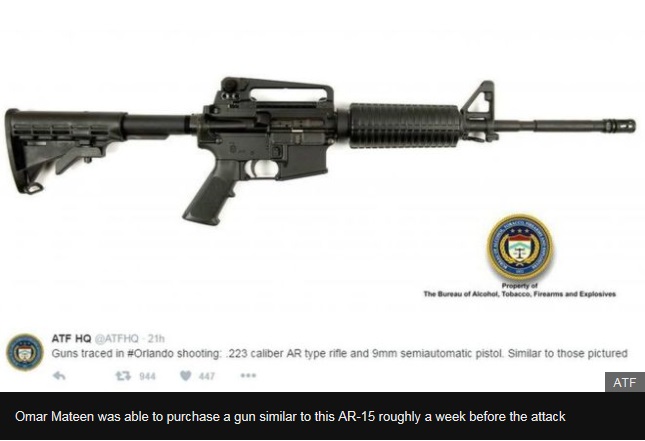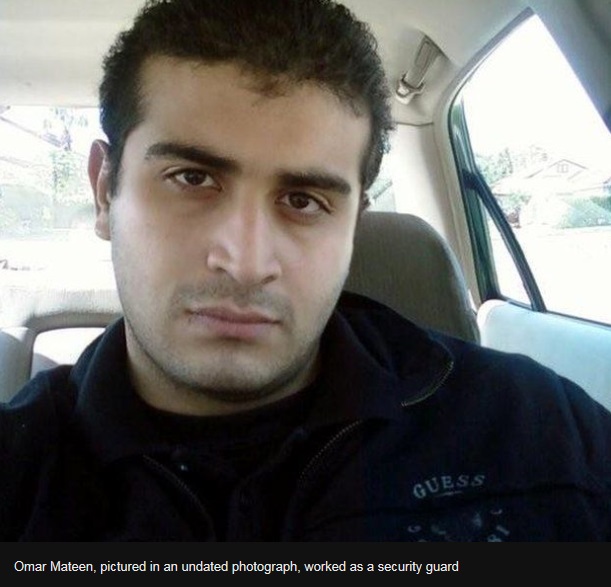
What would prevent you from buying a gun under Florida law?
After a 29-year-old gunman opened fire in Pulse Nightclub, killing 49 revellers over the course of a three-hour siege on Sunday, one of the first questions asked was, how did he obtain his weapons?
The answer: He did so legally, from a gun shop called the St Lucie Shooting Center.
"An evil person came in here and legally purchased two firearms from us," said store owner Ed Henson in a press conference outside the store. "He passed a background check that every single person who purchases a firearm in the state of Florida undergoes."
According to the Bureau of Alcohol, Tobacco and Firearms, Omar Mateen bought a 9mm semiautomatic handgun and a .223 caliber AR rifle in Florida, within the last ten days, and within the bounds of state and federal laws.

Under local law, he could have left the store with the rifle the same day - for the handgun, he would have needed to wait 72 hours.
The FBI investigated Mateen twice for potential ties to terrorism - neither incident resulted in charges, and after the investigations were closed, Mateen's name was removed from a terror watch list.
But even if he had remained on the FBI's list, that would not have necessarily prevented him from purchasing the weapons he used in Sunday's attack. A federal law that would "deny the transfer of firearms or the issuance of firearms and explosives licences to known or suspected dangerous terrorists" failed in the US Senate in December 2015.
So what would it take to be denied a gun in Florida, which is known for its relaxed gun laws? Here is a quick breakdown.
1. You've been convicted of a felony.
When prospective gun buyers visit a licensed gun shop in Florida and attempt to purchase a firearm, they must fill out a federal background check form which asks if they've ever been convicted of a felony - the most serious and violent criminal charges, like murder, aggravated assault or arson.
If the answer is "yes" the purchase will be denied. Store clerks also perform a criminal background check which happens within minutes, right in the shop, with a phone call to the Florida Department of Law Enforcement.
There are ways for convicted felons to have their gun ownership rights restored, but in Florida that means applying for a pardon or for clemency from the state government.
"[Clemency is] a very slow process in Florida - very lengthy, very slow," says Cord Byrd, a lawyer who specialises in firearms law in the state.
2. You've been convicted of misdemeanour domestic violence or have an active restraining order against you.
According to Byrd, the second most common reason to be denied a gun purchase in Florida is for domestic violence.
In the same federal background check, if it comes back that you have been convicted in a domestic violence misdemeanour or are under a current court order to stay away from a victim of domestic violence, you may not purchase a gun.
"Guns in a domestic violence situation are a recipe for murder," says Laura Cutilletta, managing lawyer for the Law Center to Prevent Gun Violence. "There is such a high percentage of deaths if there's a gun involved."
It is the only misdemeanour crime which federal law prevents the purchase of a gun, and went into effect in 1996. Some argue misdemeanour hate crime convictions should also halt a gun purchase.
3. You've been committed to a mental institution.
Since the 1960s, federal law has prohibited anyone who has been involuntarily committed to a mental institution from buying a gun. A person deemed "mentally defective" as determined by a court, for reasons of "subnormal intelligence or mental illness, incompetency, condition, or disease" is also banned.
This would also apply to anyone who has been found not guilty by reason of insanity in a court case.
In 2013, the state of Florida expanded this prohibition - with the approval of the National Rifle Association - to include people who have voluntarily committed themselves to a mental hospital. It joined states like Illinois, Maryland and the District of Columbia in expanding this restriction.
4. A mistake.
Byrd says that a healthy chunk of his work is litigating on behalf of Floridians who have been denied purchase of a firearm erroneously. The records maintained by the National Instant Criminal Background Check System (Nics) are not perfect, and mistakes can include anything from a name misspelling to erroneous court records.
"I help law-abiding people who are having problems with the system," he says.
The opposite outcome - that someone buys a gun who is not supposed to be able to - is also possible thanks to incomplete record-keeping, says Cutilletta. Some states are much more disciplined and rigorous about sending their data into Nics than others.
The loophole
Florida has no law requiring background checks of any kind if a private individual - as opposed to a licensed gun shop - sells to another private individual. This is often referred to as a "gun show loophole".
"If you go to a gun range and the guy next to you says, 'Oh, I love your gun,' you can sell it to him without going through a background check," says Adam Winkler, author of Gunfight: The Battle over the Right to Bear Arms in America and a professor at UCLA School of Law.

